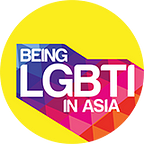Legal gender recognition pivotal for inclusion and equality of transgender people in China
6 August 2018
Beijing — The United Nations Development Programme (UNDP) and China Women’s University published a review that provides an important resource for promoting and working towards the inclusion of transgender people in China. The review is part of UNDP’s efforts to ensure lesbian, gay, bisexual, transgender and intersex (LGBTI) people have dignity, equality and inclusion in society.
Entitled “Legal Gender Recognition in China: A Legal and Policy Review”, the review considers a wide range of legal and other materials, including specific provisions of laws and policies and their accompanying implementing regulations; arbitration rulings; judicial decisions; evidence on the state of current laws and policies; and the cumulative impact of these policies and practices on the Chinese transgender community.
“Reducing gender inequalities and empowering vulnerable groups, including for transgender people, is vital to achieving the Sustainable Development Goals,” said Devanand Ramiah, Resident Representative ad interim, UNDP China.
The review highlights that legal gender recognition is important for transgender people to fully participate in society. When transgender people are unable to have their gender identity, including name and gender marker, officially recognized in public registries and identity and citizenship documents, they face being excluded from accessing health and social services — everything from applying for a job, to banking, to receiving an educational degree or picking up a parcel.
Professor Sun Xiaomei, who has served two terms on the National People’s Congress, spoke on behalf of China Women’s University, the academic partner of the review. “LGBTI people deserve more understanding and respect from society and more education and sensitizing programmes are needed to achieve that.”
While it is possible for Chinese transgender people to change their names and gender markers on official identity documents, the review has found, they must undergo gender-affirming surgeries as a necessary precondition. Secondly, schools, universities and other educational institutions lack the authority to change the gender markers displayed on student diplomas, certificates and other academic materials. This has a direct impact on the ability of transgender people to pursue their studies, obtain meaningful employment and receive promotions.
“Whether it is the employment equality for LGBTI people, or the ability to change the gender marker on education records, it requires great efforts and care from many people,” added Mr. C, a transgender man and the plaintiff of a recent successful employment discrimination case in Guizhou. “I hope that this report will open a new door for more people to work on gender diversity issues and improvement implementation of the law.”
The review provides specific recommendations and suggested actions that will promote legal gender recognition and inclusion for transgender people. Their aim is to promote an enabling environment for transgender people to access education, employment, health and other public services. It goes on to describe transgender-led community initiatives that could serve as new platforms for asserting transgender inclusion and those which could open the doors for more enhanced collaboration among the various sectors. Thus, the review strives to comprehensively improve the lives and circumstances of transgender people and encourage the development of an equal, accepting, respectful, understanding and diverse society.
The “Legal Gender Recognition in China: A Legal and Policy Review” study is part of a larger regional initiative, jointly implemented by UNDP and the Asia Pacific Transgender Network (APTN), which undertook a comprehensive review of existing laws, policies and practices related to legal gender recognition for transgender people in Bangladesh, China, India, Nepal, Pakistan, Philippines and Thailand. The regional report and other country reports are available here.
Download Legal Gender Recognition in China: A Legal and Policy Review
Contact Information: Ms. ZHANG Wei, Chief Communications Officer, UNDP China Tel: +8610 8532 0715, Email: wei.zhang@undp.org
